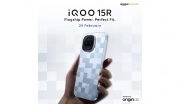Washington [US], July 4 (ANI): According to a new study, a group of scientists from Singapore have discovered that a bio-functional thermogel, a type of synthetic polymer helps to prevent retinal scarring caused by failed retinal detachment repair surgery.
The research revealed that Proliferative vitreoretinopathy occurs when the retinal scarring prevents the retina from healing and falling back into place. And its said that it accounts for more than 75 per cent of failed retinal detachment surgeries, and might result in vision loss or blindness if not treated.
Also Read | New N95 Face Mask That Can Kill COVID-19 Virus Developed by Researchers.
The findings of the study were published in the journal Nature.
Current treatment options for PVR are limited to surgical removal of these scar membranes with guarded visual recovery.[1] This work highlights the potential of using synthetic polymers alone to modulate cellular behaviour and for the first time, offers a novel thermogel-based therapy to prevent retinal scarring. The team behind the development hails from A*STAR's Institute of Molecular and Cell Biology (IMCB) and Institute of Materials Research and Engineering (IMRE), the National University of Singapore (NUS) and the Singapore Eye Research Institute (SERI).
The research team demonstrated that a bio-functional thermogel alone is able to prevent retinal scarring in a pre-clinical model that mimics human disease. Using retinal cells, the team observed that the thermogel prevented the development of the scar membranes by modulating cellular behaviours such as proliferation and migration. Using genome-wide transcriptomic analysis to profile cellular gene expression, they revealed that the thermogel activated a protein called nuclear factor erythroid 2-related factor 2 (NRF2), to kickstart a series of chemical reactions to prevent scarring.
"Our study offers insight into how synthetic polymers no longer function merely as inert drug carriers. It challenges the conventional belief that the use of a small molecule drug is always required to achieve a therapeutic effect. Beyond ophthalmology, this unique bio-functionality of the thermogel can also be applied to other diseases such as orthopaedics where intra-articular joint scarring might be a problem," said Dr Su Xinyi, Senior Principal Investigator and Division Director at A*STAR's IMCB, and Assistant Professor in the Department of Ophthalmology at NUS Yong Loo Lin School of Medicine.
"When we first developed this bio-functional thermogel at IMRE, we realised it was a significant step forward in developing next-generation biodegradable polymers. Its ability to mimic and substitute vitreous given the biocompatibility of the material, makes it useful for many other biomedical applications," said Prof Loh Xian Jun, Executive Director at A*STAR's IMRE.
The thermogel is currently being commercialised by Vitreogel Innovations Inc, an A*STAR spin-off that focuses on developing polymer-based therapeutics for ophthalmology indications. Vitreogel Innovations Inc is an ISO 13485 (Medical Device Quality Systems) accredited company that is generating a clinical grade version of the polymer for first-in-man clinical trials.
Building on this work, the team will continue to test the safety and efficacy of this polymer for retinal detachment repair and PVR prevention using additional pre-clinical disease models. Through their work, the team aims to engineer the next generation of polymers with targeted chemical modifications to elicit specific cellular behaviours, and identify alternative applications of the thermogel beyond ophthalmology. (ANI)
(The above story is verified and authored by ANI staff, ANI is South Asia's leading multimedia news agency with over 100 bureaus in India, South Asia and across the globe. ANI brings the latest news on Politics and Current Affairs in India & around the World, Sports, Health, Fitness, Entertainment, & News. The views appearing in the above post do not reflect the opinions of LatestLY)













 Quickly
Quickly


